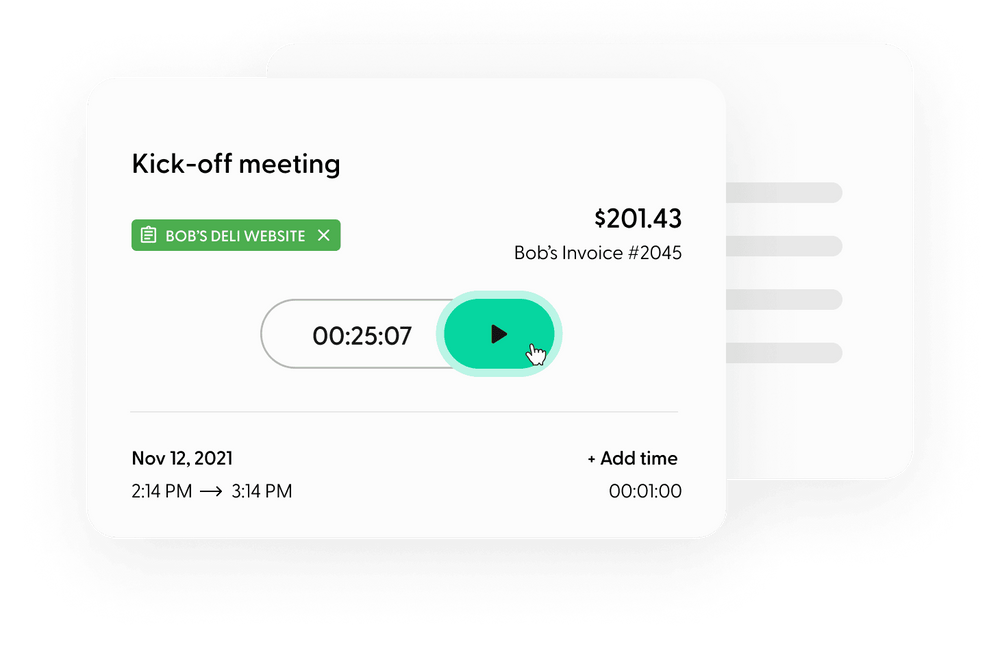You’ve got a dreaded deadline coming up. It’s a huge part of any freelancer’s life. Meeting deadlines is crucial to your reputation as a freelancer.
You’ll soon learn that your success as a freelancer largely depends on your ability to handle your workload and meet deadlines. Clients want to work with someone they can rely on and trust. This is an important skill that every freelancer needs to learn and perfect to continue growing their freelance business.
The world is full of distractions and many times it might seem impossible to hit that upcoming deadline, but we’ve put together a list of 6 tried-and-true strategies to help you always meet deadlines and deliver your project on time.
How to handle deadlines?
1. Create the perfect workspace
It’s going to be hard to hit your deadline, if you’re spending all your time searching for a comfortable place to think.
You need to work somewhere where you’re comfortable and can sit for long stretches of time. I know that if my workspace is disorganized or messy, I won’t be getting anything done.
Try to keep your workspace as neat as possible. Your mind is already buzzing with a million ideas, so it will be hard to get calm and focused, if your workspace is a mess as well.
Create the ideal space for you. Whatever that might be. We recommend working somewhere with a sturdy surface, good lighting, and an ergonomic chair.
If you feel good about where you work, chances are you’ll feel good about the work too.
2. Craft a to-do list
To prevent yourself from a situation where it’s the night before an important deadline, and you still haven’t completed the project, create a to-do list every week.
Sit down and list out every project that needs to be completed for each of your clients. Be sure to really think this through and include everything. If you miss anything, that’s unaccounted time, which could possibly put you behind.
Now prioritize your to-do list to ensure you start on the most pressing projects first. Try organizing your list with the following in mind:
- Work with upcoming due dates
- Work that needs to get done, but isn’t as pressing as the projects above
- Work that you would like to finish, but isn’t time-sensitive
- Work that you can delegate to others
- Work that can be taken off your plate
Once you’ve prioritized your list, choose 1 or 2 items to focus on each day. If you’ve got a tight deadline coming up, start on those items first. Repeat this process each day to ensure you’re always on top of your schedule and deadlines.
3. Break out your to-do list into smaller tasks
Now that you’ve crafted your to-do list, you know the “big picture” of what needs to get done. It’s time to get into the nitty gritty details of everything. Break out each major project into smaller, more doable tasks.
Once you’ve broken out the project into smaller tasks, assign each task a due date for each project you’re working on.
If you section out the whole project into smaller pieces, you likely won’t miss a deadline, since you’re working on the project in manageable parts a day at a time.
4. Add in extra time for unforeseeable circumstances
Anytime a deadline is coming up, don’t mark the deadline on your calendar for the actual day it’s due. Mark it on your calendar for a few days before it’s actually due. This will give a little extra padding in case anything unpredictable pops up.
Life happens, so it’s important to account for this when setting deadlines. You might wake up feeling awful, or maybe your kid gets sick, or there’s an out of town emergency. Again, since these things are unpredictable, it’s important to leave space for them in the very beginning.
If you always give yourself extra padding with deadlines, you likely won’t get yourself in a bind where a crisis occurs and you no longer have time to complete the project you’re working on.
5. Ditch unnecessary distractions
This one is hard, but if you have an upcoming deadline, it’s time to work! Don’t waste time with distractions. Time management is key!
Say goodbye to your favorite TV show for a while and keep yourself from checking social media. It might be tempting, but remind yourself that if you don’t hit this deadline, you could lose your client, which could affect your overall livelihood.
Try and remove yourself from as many distractions as possible. Turn off any notifications on your phone that might take you out of your work-mode or maybe just leave your phone in another room altogether. This might sound a little drastic, but if you’re at risk of missing a deadline, do whatever’s necessary to make sure that doesn’t happen.
When you’re working toward a deadline, refrain from checking email too. We know that other clients might need you, but if you’ve got an upcoming deadline, devote all your time to working on that project.
An easy solution is to set aside time on your calendar specifically for checking emails. Only check your emails during that designated period and no other time.
6. Determine when you’re most productive
Everyone is different, so learn what’s best for you and when you’re most productive.
Some people are early birds and others are night owls. If you do your best work in the morning, use this! Instead of trying to stay up late at night and get a project done, wake up early and get going first thing in the morning.
Maybe you’re the opposite. You need all the sleep you can get and do your best work alone at night. That’s okay too! It’s all about finding out what works for you.
If you determine when you’re most productive during the day, this will determine how to be the most productive when you work and how to get the most done while you do.
Deadlines can be stressful, but if you employ the above strategies, you’ll likely never miss a deadline again.




